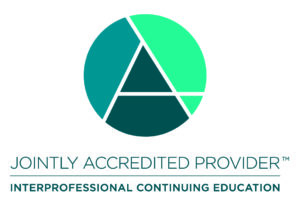
Process-Based CBT for Anxiety
An Alternative to Syndrome-Focused Treatments
Effective therapy changes the entire system toward a stable and adaptive state.
For therapy to be most effective, practitioners need to embrace a systematic, assessment-guided, and theory-based approach to understand the relationships of the various problems of a given client.
However, the focus on DSM-defined psychiatric disorders has sometimes limited the vision of CBT in its measures and application. For example, measures of flourishing, quality of life, pro sociality, relationship quality, growth, and prosperity are often less in focus despite client interest in such issues.
Process-Based Cognitive Behavioral Therapy (PB-CBT) is an alternative to the contemporary approach. It’s a radical departure from the latent disease model of the DSM and the proliferation of the protocols-for-syndrome approach.
Instead, PB-CBT focuses on how to target and change the core biopsychosocial processes underlying a client’s specific situation. This approach recognizes that psychotherapy typically involves non-linear (rather than linear), bidirectional (rather than unidirectional), and dynamic changes of many (rather than only a few) interconnected variables.
In this live online course, Dr. Stefan Hofmann will illustrate how PB-CBT is used to target key treatment processes by combining functional analysis with a dynamic and person-specific network approach. To illustrate the unique features of the treatment, Dr. Hofmann will explore its application in two common anxiety-related problems: social anxiety and generalized anxiety.
While there are plenty of workshops that provide an overview of protocols of CBT, this is the first that teaches methods based on the recommendations of an interorganizational task force gathered under the leadership of the Association for Behavioral and Cognitive Therapies with cooperation of all of the major behavioral and cognitive associations.
As an alternative to DSM-based diagnoses, in this course you’ll learn how to utilize an evolutionary “model of models” to bring process-based case formulation into a coherent system.
Dr. Hofmann will guide you through a dramatically new way of combining the CBT tools you already know into a process-based framework. You’ll also discover opportunities to step out of your own comfort zone, embrace other perspectives, and consider the individual from a broader array of theoretical orientations.
Over six live online sessions, you’ll…
- Participate in dynamic group exercises, in addition to didactic presentation
- Learn practical strategies and exercises for how to use a process-based approach to deploy the core competencies of CBT
- Practice integrating behavioral, cognitive, and acceptance and mindfulness wings of the CBT tradition under process-based CBT as a functional analytic strategy
- Explore the therapeutic change processes using a functional diagnostic system that has treatment utility
- Generate methods for evaluating the progressivity of models and theories in clinical practice
After this course, you’ll be able to construct testable, person-specific networks of key clinical features, and to fit them into a coherent structure that allows you to make flexible treatment decisions fitted to the context and purpose of the intervention.
For practitioners, researchers, students, instructors, and other professionals working with CBT, this breakthrough approach — already setting a new standard in coursework and training — provides the guidance you need to fully comprehend and utilize the core competencies of CBT in a way that honors the behavioral, cognitive, and acceptance and mindfulness wings of the tradition.
Join Dr. Hofmann inside the course and learn a comprehensive, process-based toolset for helping your clients overcome their anxiety, and build lives of greater meaning and prosperity.
This training is worth 12 CE credit hours if attended live. While we can only provide CE to those who are present – i.e. logged in – for live presentation(s), all Praxis webinars are recorded for later viewing. Registrants may then access these recordings at any time for up to six months from the conclusion of the training to which they pertain.
Prior to registering, please click here to review speaker-planner conflict of interest disclosures and complete CE information.
Session 1 | March 2, 2022, 12 PM—2 PM EST
From Protocols-for-Syndrome to Process-based Therapy
Session 2 | March 9, 2022, 12 PM—2 PM EST
The Nature and Treatments of Anxiety
Session 3 | March 16, 2022, 12 PM—2 PM EDT
A Treatment Protocol for “Generalized Anxiety Disorder”
Session 4 | March 23, 2022, 12 PM—2 PM EDT
The PBT Alternative for Treating Generalized Anxiety and Worry
Session 5 | March 30, 2022, 12 PM—2 PM EDT
A Treatment Protocol for “Social Anxiety Disorder”
Session 6 | April 6, 2022, 12 PM—2 PM EDT
The PBT Alternative for Treating Social Anxiety
Participants will be able to:
- Describe the limitations of a latent disease model.
- Develop a functional analysis based on network theory.
- Apply evolutionary science to a mental health issues.
- Identify the dimensions of mental health as adaptation.
- Describe the principles of evolutionary science: Variation, selection, and retention in context.
- Select the most appropriate treatment strategies to a given problem.
- Contrast the syndrome-based protocol treatment of GAD with a PB-CBT approach.
- Contrast the syndrome-based protocol treatment of SAD with a PB-CBT approach
Please review complete CE and conflict-of-interest disclosure information prior to registering. This live online course is sponsored by Praxis Continuing Education and Training and is approved for 12 CE Hours by the following listed below. There was no commercial support for this activity. None of the planners or presenters for this educational activity have relevant financial relationship(s) to disclose with ineligible companies whose primary business is producing, marketing, selling, re-selling, or distributing healthcare products used by or on patients.
Praxis CET maintains responsibility for the program with the CE approvals outlined below:
Joint Accreditation: In support of improving patient care, Praxis Continuing Education and Training, Inc is jointly accredited by the Accreditation Council for Continuing Medical Education (ACCME), the Accreditation Council for Pharmacy Education (ACPE), and the American Nurses Credentialing Center (ANCC), to provide continuing education for the healthcare team.
In support of improving patient care, Praxis Continuing Education and Training, Inc is jointly accredited by the Accreditation Council for Continuing Medical Education (ACCME), the Accreditation Council for Pharmacy Education (ACPE), and the American Nurses Credentialing Center (ANCC), to provide continuing education for the healthcare team.
IPCE: This activity was planned by and for the healthcare team, and learners will receive 12 Interprofessional Continuing Education (IPCE) credit for learning and change.
Nursing: Praxis Continuing Education and Training, Inc designates this activity for a maximum of 12 ANCC contact hours.
Physicians: Praxis Continuing Education and Training, Inc designates this live internet activity for a maximum of 12 AMA PRA Category 1 Credits™. Physicians should claim only the credit commensurate with the extent of their participation in the activity.
Psychologists: ![]() Continuing Education (CE) credits for psychologists are provided through the co-sponsorship of the American Psychological Association (APA) Office of Continuing Education in Psychology (CEP). The APA CEP Office maintains responsibly for the content of the programs.
Continuing Education (CE) credits for psychologists are provided through the co-sponsorship of the American Psychological Association (APA) Office of Continuing Education in Psychology (CEP). The APA CEP Office maintains responsibly for the content of the programs.
Social Workers: As a Jointly Accredited Organization, Praxis Continuing Education and Training, Inc is approved to offer social work continuing education by the Association of Social Work Boards (ASWB) Approved Continuing Education (ACE) program. Organizations, not individual courses, are approved under this program. State and provincial regulatory boards have the final authority to determine whether an individual course may be accepted for continuing education credit. Praxis Continuing Education and Training, Inc maintains responsibility for this course. Social workers completing this course receive 12 clinical continuing education credits.
Drug and Alcohol Counselors: This course has been approved by Praxis Continuing Education and Training, Inc, as a NAADAC Approved Education Provider, for 12 CE hours. NAADAC Provider #165310, Praxis Continuing Education and Training, Inc, is responsible for all aspects of its programming.
National Counselors:  Praxis Continuing Education and Training, Inc. has been approved by NBCC as an Approved Continuing Education Provider, ACEP No. 6759. Programs that do not qualify for NBCC credit are clearly identified. Praxis Continuing Education and Training, Inc. is solely responsible for all aspects of the programs.
Praxis Continuing Education and Training, Inc. has been approved by NBCC as an Approved Continuing Education Provider, ACEP No. 6759. Programs that do not qualify for NBCC credit are clearly identified. Praxis Continuing Education and Training, Inc. is solely responsible for all aspects of the programs.
NY Social Workers: Praxis Continuing Education and Training, Inc is recognized by the New York State Education Department’s State Board for Social Work as an approved provider of continuing education for licensed social workers #SW-0467
NY Counselors: Praxis Continuing Education and Training, Inc. is recognized by the New York State Education Department’s State Board for Mental Health Practitioners as an approved provider of continuing education for licensed mental health counselors. #MHC-0198.
NY Psychologists: Praxis Continuing Education and Training, Inc. is recognized by the New York State Education Department’s State Board for Psychology as an approved provider of continuing education for licensed psychologists #PSY-0002.
Hayes, S. C. & Hofmann, S. G. (Eds.) (2018). Process-based CBT: The science and core clinical competencies of cognitive behavioral therapy. Oakland, CA: New Harbinger Publications. ISBN-13: 978-1626255968.
Hayes, S. C. & Hofmann, S. G. (2017). The third wave of CBT and the rise of process-based care. World Psychiatry, 16, 245-246. doi: 10.102/wps.20442
Hofmann, S. G., & Hayes, S. C. (2019). The future of intervention science: Process-based therapy. Clinical Psychological Science, 7, 37–50. doi: 10.1177/2167702618772296
Hofmann, S. G., Curtiss, J. E., & Hayes, S. C. (in press). Beyond linear mediation: Toward a dynamic network approach to study treatment processes. Clinical Psychology Review. doi: 10.1016/j.cpr.2020.101824
Hofmann, S. G. & Otto, M. W. (2018). Cognitive-behavior therapy of social anxiety disorder: Evidence-based and disorder specific treatment techniques (Second Edition). New York, NY: Routledge. ISBN: 978-138-67143-0.
Hofmann, S. G. (2020). The anxiety skills workbook: Simple CBT and mindfulness strategies for overcoming anxiety, fear, and worry. Oakland, CA: New Harbinger Press. ISBN: 1684034523
We understand, sometimes things come up!
Praxis will offer a full refund to registrants of both live and live-online trainings who cancel their registration up to 14 days before the course or workshop start date, minus an administrative processing fee of $30 for a 2-day workshop or online course, and a $50 fee for a 4-day workshop. If cancelled within 14 days, no refund will be issued, however, a credit for the same amount will be applied toward another learning product, which expires within 1 year. Please email us at online@praxiscet.com to cancel a registration.


